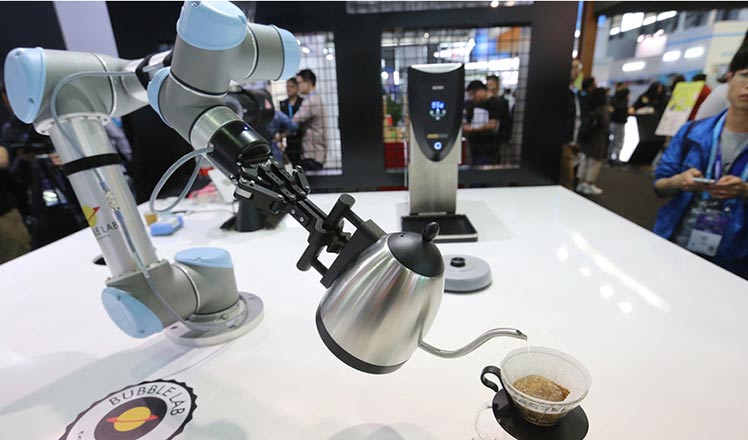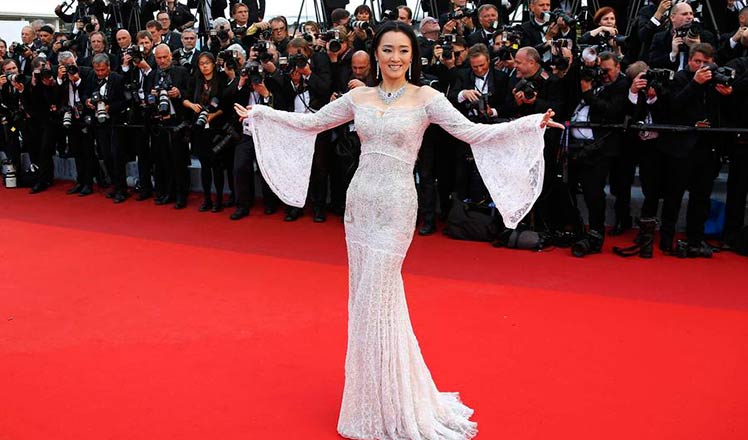Bilateral ties crucial: Jim Baker
Updated: 2016-05-13 12:13
By Chen Weihua in Washington(China Daily USA)
|
||||||||
Getting the US-China relationship right should be a top priority, in the eyes of two former senior US government officials.
James Baker, who served as secretary of state in George H. W. Bush's administration, said one of the biggest challenges facing American policymakers today is how to react to the rise of China as a global power.
"It's extremely important that we get it right," he told the Senate Foreign Relations Committee in a hearing on Thursday. "It's important that China gets it right, too, in terms of their relationship with us."
Baker believes there are areas of convergence of interests with China, but that areas of tension will continue to exist.
"We need to cooperate with China where we can," he said, citing the issues of regional security, energy security and trade.
"But we need to manage differences that are going to exist," he said, noting the matters of human rights, Taiwan, Tibet and the South China Sea.
"It's not foreordained that United States and China are going to become enemies, at least in my opinion, if we play our cards right," said Baker, who also served as secretary of the treasury in the Reagan administration.
"There is no more serious diplomatic burden that we are going to have looking forward than managing the US-China relationship right," Tom Donilon, former national security advisor in the Obama administration, told the committee.
He said it's a great challenge for policymakers on both sides, given the dynamic of a rising power and existing power throughout history.
While historically the most likely outcome between an established power and an emerging power is conflict, Donilon said conflict is not inevitable.
"I do not see international relations as a subset of physics," he said. "Our countries' leaders can avoid conflict through steady engagement and a concerted effort to avoid strategic miscalculations."
Donilon believes a major test of the US-China relationship going into the next year is the situation in the Democratic People's Republic of Korea. He was referring to the deployment of the THAAD missile system and other measures the US is likely to take against the threat from the DPRK's nuclear and missile programs. He acknowledged that it would make China uncomfortable strategically.
Both China and Russia have repeatedly expressed their opposition to the deployment of a THAAD system in South Korea and regard it as a strategic threat to their territories.
"The dialogue on this with China is quite urgent," Donilon told the senators. "It's a real test for the relationship going forward."
Both Donilon and Baker emphasized the importance of a continued US military presence and security alliances in East Asia. They expressed concerns over what they described as "aggressive" and "provocative" activities by China in the South China Sea.
Many Chinese regard the US as a major player behind the scenes in stirring up tensions in the South China Sea to advance its rebalance to Asia strategy and curtail the growing influence of a rising China.
chenweihua@chinadailyusa.com

 Karst wonderland in Southwest China
Karst wonderland in Southwest China
 Love on the rubble: wedding stories after deadly quake eight years ago
Love on the rubble: wedding stories after deadly quake eight years ago
 Italy's violin-makers struggle to hit profitable note
Italy's violin-makers struggle to hit profitable note
 High-tech gadgets shine at CES Asia in Shanghai
High-tech gadgets shine at CES Asia in Shanghai
 Cannes Film Festival opens amid terror threat
Cannes Film Festival opens amid terror threat
 Supporters of Rousseff clash with police as her removal looms
Supporters of Rousseff clash with police as her removal looms
 Lego opens world's largest store at Shanghai Disney
Lego opens world's largest store at Shanghai Disney
 Exhibition of table setting art held in Beijing
Exhibition of table setting art held in Beijing
Most Viewed
Editor's Picks

|

|

|

|

|

|
Today's Top News
Liang avoids jail in shooting death
China's finance minister addresses ratings downgrade
Duke alumni visit Chinese Embassy
Marriott unlikely to top Anbang offer for Starwood: Observers
Chinese biopharma debuts on Nasdaq
What ends Jeb Bush's White House hopes
Investigation for Nicolas's campaign
Will US-ASEAN meeting be good for region?
US Weekly

|

|







